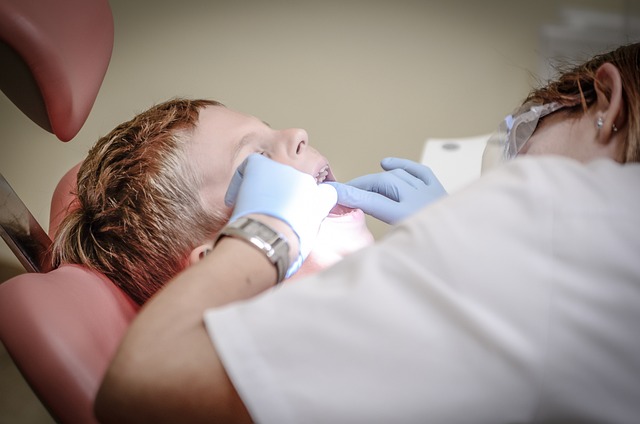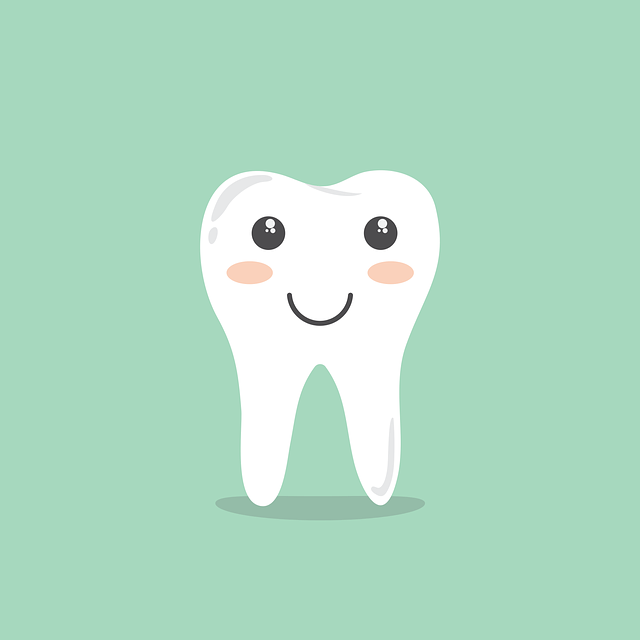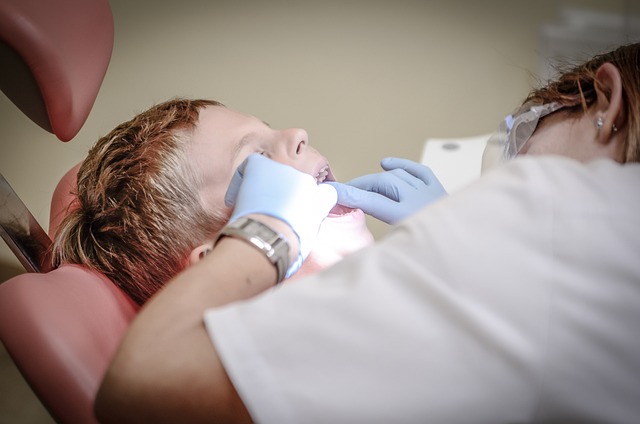Relieving Post-Extraction Pain: Duration of Painkiller Use
Hello there! If you’ve recently gone through a tooth extraction, we understand that the healing process can come with a fair share of discomfort. The good news is that we’re here to help you navigate this phase more comfortably. In this article, we’re going to delve into the duration of painkiller use when it comes to relieving post-extraction pain. Whether you’re curious about how long you should expect to rely on pain medication or looking for natural alternatives, we’ve got you covered. So sit back, relax, and let us guide you through the journey of finding relief after tooth extraction.
1. Understanding Post-Extraction Pain: What to Expect After Tooth Removal
After you have a tooth removed, it is normal to experience some post-extraction pain. Understanding what to expect during the recovery process can help ease your concerns and ensure a smooth healing journey. Here’s a rundown of what you can anticipate after tooth removal:
- Pain and Discomfort: It is common to experience mild to moderate discomfort after a tooth extraction. This discomfort usually peaks within the first two to three days before gradually subsiding. Over-the-counter pain medication, as prescribed by your dentist, can help manage the pain.
- Swelling: Swelling is also expected after tooth removal. It typically reaches its maximum within 48 hours of the procedure and gradually decreases over the next few days. Applying an ice pack to the area can help reduce swelling and alleviate discomfort.
- Bleeding: It is normal to experience some bleeding immediately after the tooth extraction. Your dentist will provide you with gauze pads to bite on, helping to control the bleeding. If bleeding persists or becomes excessive, contact your dentist immediately.
- Restricted Activities: It is essential to take it easy after a tooth extraction. Engaging in strenuous activities can delay the healing process and increase the risk of complications.
The post-extraction pain and discomfort you experience will gradually improve as time goes on. However, if you have any concerns or if the pain worsens over time, it is important to reach out to your dentist for further guidance and reassurance.

2. Managing Post-Extraction Pain: The Importance of Painkillers
After a tooth extraction, it’s common to experience some discomfort and pain. That’s why managing post-extraction pain is crucial for a speedy recovery. One effective way to alleviate this discomfort is by taking painkillers. Painkillers help reduce pain, swelling, and inflammation, allowing you to feel more comfortable throughout the healing process.
There are several types of painkillers that dentists commonly recommend for managing post-extraction pain. These include:
- Nonsteroidal anti-inflammatory drugs (NSAIDs): NSAIDs like ibuprofen and naproxen sodium are often the go-to painkillers for tooth extractions. They relieve pain, reduce inflammation, and also minimize swelling.
- Acetaminophen: Also known as paracetamol, acetaminophen is another over-the-counter painkiller that can be effective in managing post-extraction pain. It’s particularly useful for those who cannot take NSAIDs due to certain medical conditions or allergies.
- Opioids: In certain cases, your dentist may prescribe opioids for severe post-extraction pain. However, these are typically only used for a short period of time due to their potential for addiction and other side effects.
Remember, it’s crucial to follow your dentist’s instructions when taking painkillers, including the recommended dosage and timing. By managing your post-extraction pain effectively with painkillers, you’ll be on your way to a smoother recovery and getting back to your normal routine in no time!

3. How Long Should I Take Painkillers After a Tooth Extraction?
After a tooth extraction, painkillers can be a helpful tool to manage any discomfort or pain you may experience during the healing process. It’s important to take them as directed by your dentist or oral surgeon to ensure proper pain management and promote a smooth recovery. Here are some guidelines to help you determine how long you should take painkillers:
- The first 24 hours: During this initial period, it is common to experience some pain and discomfort. Your dentist may prescribe or recommend over-the-counter pain relievers such as Ibuprofen or Acetaminophen. Take the prescribed painkillers or follow the recommended dosage on the packaging to alleviate the immediate post-extraction pain. Remember to follow all instructions provided by your dentist for a safe and effective pain management regimen.
- 48-72 hours: In most cases, the intensity of the pain should start to decrease within the first few days. You may continue taking painkillers as needed during this time, but it’s important to gradually reduce the dosage if the pain is less severe. Be aware of any adverse side effects, and consult your dentist if the pain persists or worsens despite taking pain medication.
- After 72 hours: By this point, the pain should be significantly reduced or manageable without painkillers. Continuing to take painkillers at this stage may not be necessary unless specifically advised by your dentist. It’s crucial to follow any additional instructions given by your dental professional regarding pain management and recovery.
Remember, each person’s healing process may vary, and it’s essential to communicate with your dentist throughout your recovery journey. This will allow them to monitor your progress and provide any necessary adjustments to your pain management plan. If you have any concerns or questions regarding taking painkillers after a tooth extraction, don’t hesitate to reach out to your dental professional for guidance and support.

4. Finding Relief: A Guide to Post-Extraction Pain Management
After a tooth extraction, it is common to experience some discomfort and pain. However, there are several effective methods to manage and find relief from post-extraction pain. Here are some helpful tips to help you through this healing phase:
1. Over-the-counter (OTC) Medications:
- Utilize medications such as ibuprofen or acetaminophen to alleviate pain and reduce inflammation.
- Follow the recommended dosage instructions provided on the packaging.
- Be cautious if you have any pre-existing medical conditions or are taking other medications—consult your dentist or healthcare provider.
2. Cold Compress:
- Place an ice pack or a cold compress on your cheek near the extraction site for about 10-15 minutes at a time.
- This will help reduce swelling and numb the area, providing temporary pain relief.
- Remember to wrap the ice pack in a cloth to prevent direct contact with your skin.
By employing these techniques, you can ensure a more comfortable recovery period after your tooth extraction. Remember, if you have any concerns or the pain persists, don’t hesitate to reach out to your dentist, who can provide further guidance and assistance.

5. Balancing Pain Relief and Healing: Duration of Painkiller Use
Duration of Painkiller Use
When it comes to managing pain, finding the right balance between pain relief and healing is crucial. While painkillers offer much-needed relief, it’s important to understand the appropriate duration of their usage. Here are some key points to keep in mind:
- Consult your healthcare provider: Before starting any painkiller regimen, it’s essential to consult with your healthcare provider. They will assess your condition and provide personalized guidance on the duration of painkiller use.
- Follow the recommended dosage: Always adhere to the recommended dosage provided by your healthcare provider or indicated on the packaging. Taking more than the prescribed amount will not lead to better pain relief; instead, it may increase the risk of adverse effects.
- Consider the type of painkiller: Different painkillers have varying effects and durations of action. Some may offer short-term relief, while others may provide longer-lasting relief. Understanding the characteristics of the painkiller you are using can help determine the appropriate duration of use.
By striking the right balance between pain relief and healing, you can effectively manage your pain while promoting your body’s natural healing process. Remember, proper consultation and following guidelines are the keys to a safe and effective painkiller regimen.
6. The Role of Painkillers in Alleviating Post-Extraction Discomfort
After a tooth extraction, it is normal to experience some discomfort and pain. Luckily, there are painkillers that can help alleviate these symptoms. If you’re wondering how painkillers can assist in your recovery, here are some key points to consider:
- Reduces inflammation: Painkillers, especially nonsteroidal anti-inflammatory drugs (NSAIDs) such as ibuprofen, work by reducing inflammation in the affected area. By minimizing swelling, pain and discomfort are significantly reduced.
- Relieves pain: The primary role of painkillers is to alleviate pain. They target the nerve receptors that transmit pain signals to the brain, effectively blocking or reducing these signals. This allows you to experience relief and focus on your recovery.
- Enhances healing: Painkillers can support the healing process by reducing pain and inflammation. When you’re in less pain, you may find it easier to follow post-extraction care instructions, such as proper oral hygiene and a soft food diet. This can promote faster healing.
It’s important to note that while painkillers can provide relief, they do not replace other aspects of post-extraction care. Always follow the instructions provided by your dentist or oral surgeon and use painkillers as directed. If you have any concerns or questions about which painkiller is suitable for you, don’t hesitate to contact your dental professional for guidance.
7. When to Stop Taking Painkillers: Signs of Recovery after Tooth Extraction
After undergoing a tooth extraction, it is important to know when to stop taking painkillers and recognize the signs of recovery. While painkillers can provide immediate relief, you don’t want to rely on them for longer than necessary. Here are some indicators that may suggest you’re on the road to recovery:
- Reduced swelling: Typically, swelling peaks within the first 48 hours after tooth extraction. As your recovery progresses, you should notice a decrease in swelling. However, if swelling continues or worsens after a few days, it’s advised to contact your dentist.
- Less pain: As the days pass, the intensity of pain should gradually diminish. Initially, it’s normal to experience some discomfort, but it should become more manageable. If you find that the pain persists or becomes more severe after a week, it’s best to consult with your dentist.
- Improved oral hygiene: Proper oral hygiene is crucial during the healing process. As you recover, you should notice a reduction in bleeding and a gradual return to normal activities like brushing and flossing, while being gentle around the extraction site.
It’s important to remember that every individual heals at their own pace. Remember to follow any post-operative instructions provided by your dentist and maintain regular check-ups for the best recovery outcome. If you have any concerns or questions about your healing progress, don’t hesitate to reach out to your dental care team for guidance and reassurance.
8. Minimizing Discomfort: The Optimal Duration for Painkiller Use after Extraction
After undergoing a tooth extraction, discomfort can be inevitable. Fortunately, painkillers can provide much-needed relief during the recovery process. However, it’s important to note that taking painkillers for too long or in excessive amounts can have adverse effects on your overall health. To minimize discomfort while ensuring your well-being, it is crucial to adhere to the optimal duration for painkiller use after extraction.
1. Follow your dentist’s instructions: Your dentist is the best source of guidance when it comes to painkiller use after extraction. They will recommend the appropriate duration and dosage based on your specific case. Be sure to carefully follow their instructions to optimize your recovery and minimize any potential side effects.
2. Do not exceed the recommended dosage: It can be tempting to take more painkillers than prescribed, especially if you’re experiencing heightened discomfort. However, exceeding the recommended dosage can be harmful. Stick to the prescribed amount and consult your dentist if you feel it is insufficient for your pain management.
9. Adjusting Pain Management: Factors Affecting the Length of Painkiller Use
Factors Affecting the Length of Painkiller Use
When it comes to managing pain, finding the right balance between relief and avoiding dependency is crucial. While painkillers can provide much-needed comfort, it’s important to know the factors that can impact the duration of their use. Here are some key considerations to keep in mind:
- Pain severity: The intensity of your pain plays a significant role in determining how long you may need painkillers. Mild or acute pain might temporarily require medication, while chronic or severe pain may require longer-term pain management strategies.
- Underlying condition: The underlying cause of your pain can influence the length of painkiller use. If the pain stems from a temporary injury or surgery, your painkiller usage may be limited to a specific recovery period. Alternatively, if the pain is associated with a chronic condition, a more extended treatment plan might be necessary.
- Tolerance and effectiveness: Over time, your body may build up a tolerance to pain medication, causing its effectiveness to diminish. If this occurs, your doctor may need to adjust the dosage or consider alternative pain management options to ensure continuous relief.
Remember, it’s always essential to consult with your healthcare provider to determine the appropriate length of painkiller use in your specific situation. They can evaluate your pain levels, underlying condition, and individual needs to create a personalized pain management plan that takes these factors into account. Open communication with your healthcare team will help ensure you receive the best possible care and minimize any potential risks associated with painkiller usage.
10. Regaining Comfort: Gradually Reducing Painkiller Use after Tooth Removal
After having a tooth removed, it is common to experience discomfort or pain during the recovery process. While painkillers can provide temporary relief, it is important to gradually reduce their use to regain your comfort and promote healing. Here are some tips to help you manage your painkiller use post-tooth removal:
- Follow the prescribed dosage: Ensure you are taking the painkillers as instructed by your dentist or oral surgeon. Stick to the recommended dosage to avoid any complications or potential side effects.
- Use painkillers strategically: Take painkillers before the anesthetic wears off to preemptively manage pain. Additionally, take them on a regular schedule to maintain a consistent level of relief.
- Try over-the-counter alternatives: If the pain is mild, you can explore over-the-counter pain relievers such as ibuprofen or acetaminophen. Always consult with your dentist or pharmacist before using any new medication.
- Apply cold compresses: To reduce swelling and numb the area, gently place a cold compress on your cheek for 10-15 minutes at a time. This can help alleviate pain and discomfort.
Remember, it is essential to gradually decrease your painkiller use rather than abruptly stopping, as this could lead to increased pain. As the days go by, try to rely more on natural remedies and techniques to manage any lingering discomfort. Here are a few suggestions:
- Oral rinses: Rinse your mouth with warm saltwater after meals to promote healing and reduce infection risk.
- Gentle brushing: Gently brush your teeth, avoiding the extraction site, to maintain oral hygiene without causing irritation.
- Soft food diet: Stick to softer foods and liquids during the initial days to prevent aggravating the healing socket.
- Avoiding tobacco and alcohol: As they can impede healing, it’s best to abstain from tobacco and alcohol consumption until you have fully recovered.
By following these tips and listening to your body, you can gradually reduce your painkiller use after tooth removal and regain your comfort. Remember, if you have any concerns or the pain persists, reach out to your dentist for further guidance.
Frequently Asked Questions
Title: Relieving Post-Extraction Pain: Duration of Painkiller Use
Q: What causes post-extraction pain after a dental procedure?
A: Post-extraction pain is a common occurrence after dental procedures, resulting from trauma to the tissues surrounding the extracted tooth. It typically includes discomfort, swelling, and sensitivity in and around the extraction site.
Q: How long does post-extraction pain last?
A: The duration of post-extraction pain can vary from person to person, but generally, it lasts for a few days up to a week. The intensity of pain also tends to decrease gradually during this period.
Q: Are painkillers necessary to relieve post-extraction pain?
A: Painkillers are not always necessary, but they can greatly alleviate discomfort during the recovery period, allowing you to resume normal activities sooner. It’s always best to consult your dentist to determine the most suitable pain relief approach.
Q: Which painkillers are commonly recommended for managing post-extraction pain?
A: Over-the-counter non-steroidal anti-inflammatory drugs (NSAIDs) such as ibuprofen or naproxen are commonly recommended for managing post-extraction pain. They help reduce inflammation, alleviate pain, and promote faster healing.
Q: How long should painkillers be taken after a tooth extraction?
A: Painkillers should only be taken as long as necessary, usually for the first few days following the extraction. It’s essential to follow your dentist’s instructions or the recommended dosage mentioned on the packaging.
Q: Can I switch to non-medicated alternatives for pain relief?
A: Yes, as your pain subsides, you may gradually reduce or eliminate the use of painkillers. Non-medicated alternatives like warm saltwater rinses or cold compresses can be effective in reducing discomfort.
Q: What factors may affect the duration of painkiller use?
A: Individual pain tolerance, the complexity of the extraction, and the overall healing process can impact the duration of painkiller use. It’s crucial to communicate any concerns or changes in pain levels to your dentist for appropriate guidance.
Q: Are there any potential side effects associated with painkiller use?
A: Painkillers, like any medications, may have side effects. However, over-the-counter NSAIDs are generally safe when used as directed. If you experience any adverse effects or are unsure about the appropriate dosage, consult your dentist or pharmacist.
Q: Can I take painkillers if I have existing medical conditions or take other medications?
A: It would be prudent to consult your dentist or primary healthcare provider before taking any painkillers, especially if you have underlying medical conditions or are currently taking other medications. They can advise you on potential interactions or recommend alternatives if necessary.
Q: When should I seek professional help for prolonged or severe post-extraction pain?
A: If the pain worsens or persists beyond a week, it’s advisable to consult your dentist promptly. They can assess the situation, rule out any complications, and provide appropriate treatment options to ensure optimal healing and pain relief.
Conclusion
In conclusion, understanding the duration of painkiller use after dental extractions is crucial for ensuring a smooth and comfortable recovery process. By following the guidance provided by your dentist, you can effectively manage post-extraction pain and minimize any discomfort that may arise. Remember to always consult with your oral healthcare professional if you have any concerns or questions. We hope that this article has provided you with the necessary information to relieve your post-extraction pain and enjoy a speedy recovery. Take care of your oral health, and remember that a pain-free smile awaits you!






